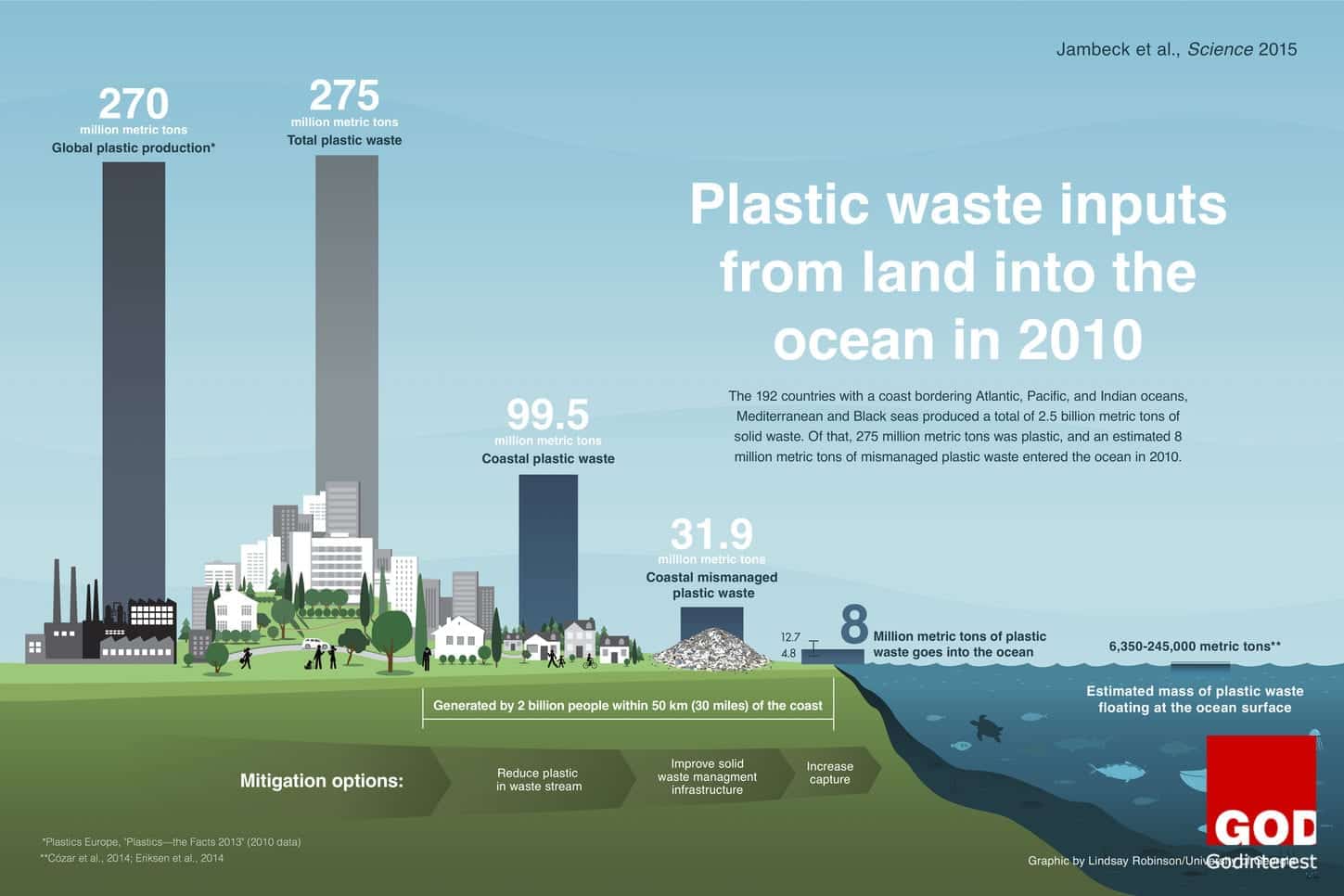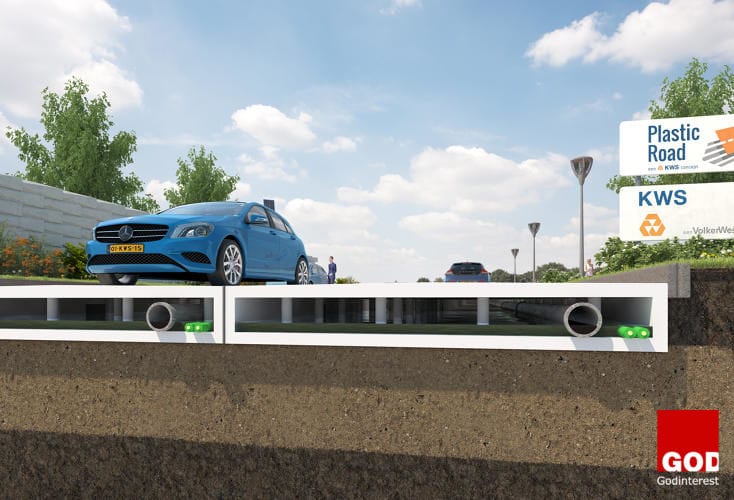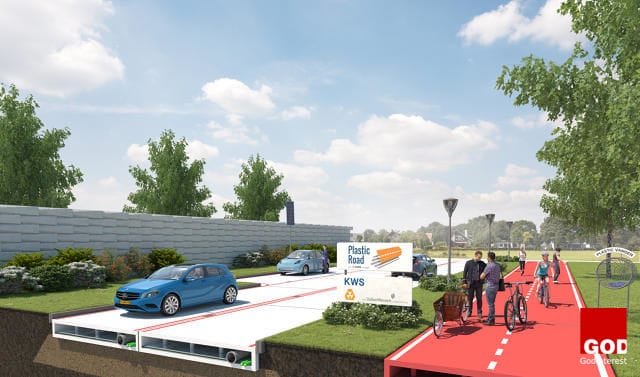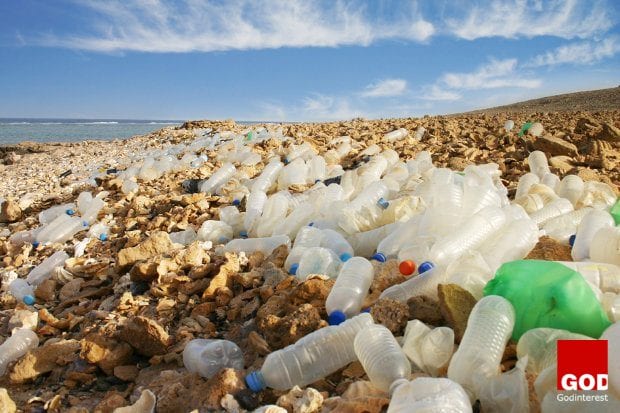Roads made out of plastic, not possible? The Dutch have other ideas and there is a ready made source floating in our oceans.
What about the idea of a road that contains no concrete or hardcore but plastic which otherwise would go to landfill, be incinerated, or worse, form part of what is estimated to be 8 billion kgs of plastic floating around our oceans. The ubiquity, volume, and permanence of plastic waste demands better solutions.
Around 8 Million Metric Tonnes Go into the Oceans Each Year, According to the First Rigorous Global Estimate Published in Science Today

A Dutch company thinks they have the answer, constructing roads using lightweight plastic instead of asphalt which requires less maintenance, thanks to the material’s greater resistance to corrosion, weather and extreme changes in temperature.
We May Soon Be Driving on Last Year’s Plastic Bags and Bottles, Fished out of the Ocean
Prefabricated off site, the sections of road would be formed with space for cables and utility pipes below the surface, and the roads could be integrated with anything from traffic sensors, to measuring equipment or connections for street lamps.


“The concept is based on the use of all kinds of waste plastic, but mainly the part of the waste stream that doesn’t already have ‘high end’ recycling applications and would ordinarily be burned,” says Alex van de Wall, an innovation manager at KWS Infra, the company testing the new plastic roads. “One of the sources is the so-called plastic soup floating in our oceans.”
The company hopes to build the first fully recycled thoroughfare within three years, and the city of Rotterdam has signaled an interest in running a trial.
A thought to ponder”¦”¦”¦developing more cities to become “smart” by expanding public transport, increasing energy saving measures and using better methods of waste management could save the global economy as much as $22tn by 2050.
Visit Us
Godinterest Community Fellowship is dedicated to proclaiming Christ and set apart to save and empower lives. Sign-up to receive inspiration to draw closer to God each day.
Our Location: Central London Community Church - Crawford Place, London, W1H 5JE
Regular Meetings Divine Service: Every Saturday from 11:15 AM
Godinterest is sponsored by Dean Jones of Jamaica Homes




excellent, post
excellent
Thanks for taking the time to leave a comment.
Which leads to a host of different questions related to the nature of the degradation process….
Presumably it abrades and physically wears down, leading to particles of plastic which wear off and flush down the sewer with the next storm….and end up in the ocean. There’s already concern about microbeads in the oceans from exfoliating soaps.
I’d assume it also chemically breaks down, primarily from UV rays. Does that lead to off-gassing (sort of like “the new car smell”)?
Admittedly, everything breaks down physically and chemically. Concrete, asphalt. Asphalt off-gasses as well. Is the plastic more or less benign or adverse than current roadway options?
By changing the basic makeup of our roads, would you not then have to retool the compounds of the tires we use on those roads?
It is awesome that people are finally thinking about how to reuse the amount of plastics being tossed out every day, I am not sold on the idea that our transportation infrastructure is a good use. Maybe a few parking lots and walking trails scattered in different climate zones would be a better test of the new technology.
Very cool! My only concern would be the weather depending on region of the world these roads were to be placed.
That would be utterly brilliant! What a great way to reduce landfills!